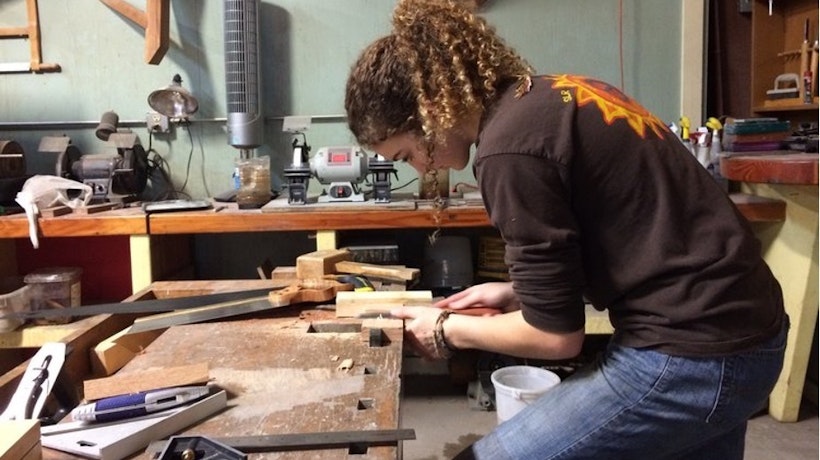
In 1968, the National Trust for Historic Preservation’s Whitehill Report brought to light that America’s labor force of traditionally trained artisans was rapidly aging out, further challenged by a lack of available educational resources to train the next generation of craftspeople. It noted, “With rapidly changing techniques in the building trades, inspired by new materials and pre-fabrication, the ability to repair (or where necessary reproduce) details in old buildings has become extremely uncommon.”
In South Carolina’s coastal Lowcountry region, these workforce challenges became locally relevant in September 1989 when Hurricane Hugo left a devastating trail of destruction that significantly impacted historic Charleston. The category 4 storm damaged 80% of the roofs in the city and over 100 buildings suffered structural damage or were destroyed. The immediate demand for skilled artisans required bringing in trained professionals including European craftspeople to ensure the city’s historic built environment would be properly restored. Recognizing this was not a sustainable approach to preserving one of the country’s oldest cities, the American College of the Building Arts (ACBA) was established in 1999.

Today, ACBA is thriving and distinguishes itself from traditional trades training as the only four-year baccalaureate-level college in America that integrates professional training in the building arts with a liberal arts curriculum. Four-year Bachelor of Applied Science and two-year Associate of Applied Science degrees offer specialized programs in architectural carpentry, blacksmithing, plaster, timber framing, architectural stone, and classical architecture and design. In addition to learning the professional skills of their trade, students acquire broad liberal arts knowledge through courses specifically applicable to careers in the building trades such as material science, business, and leadership. Annual paid summer externships provide valuable hands-on field training at notable locations such as the White House Oval Office, the U.S. Capital, George Washington’s Mount Vernon, the Library of Congress, Heidelberg Castle in Germany, and Lincoln Cathedral in the UK.

The Driehaus Foundation has long recognized the critical need for historic trades education and funds skilled artisan training through a variety of organizations. In April, we awarded ACBA with a $125,000 grant to establish and fund The Richard H. Driehaus Study Abroad Program at the American College of the Building Arts. Annual two-week long trips will provide students with an opportunity to experience first-hand the architectural and cultural masterpieces of great European cities, earn academic credit, and achieve learning objectives through site visits, lectures, tours, and cultural activities. European destinations will rotate each year and the first study abroad trip will take place in December 2023.
Chad Urban, Chief Financial Officer at ACBA recently noted, “Thanks to this grant our students will be able to study in Europe with some of the most skilled artisans in the world and perfect their skills and knowledge. It is a tremendous opportunity for our students. The majority receive financial aid and would not have the means to pay for a study abroad program without this grant. Richard deeply valued historic preservation and classical architecture and we are proud to help advance his vision with the work we do at the College.”
In recognition of ACBA’s excellence, the South Carolina Arts Commission recently presented the college with its annual Governor’s Awards for the Arts that honor arts organizations, patrons, artists, members of the business community, and government entities that maximize their roles as innovators, supporters, and advocates of the arts.


